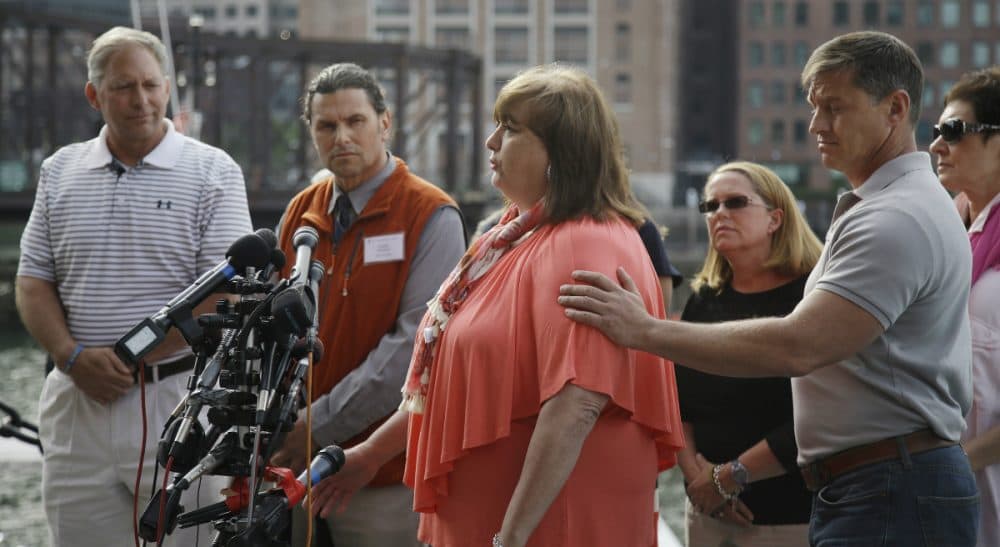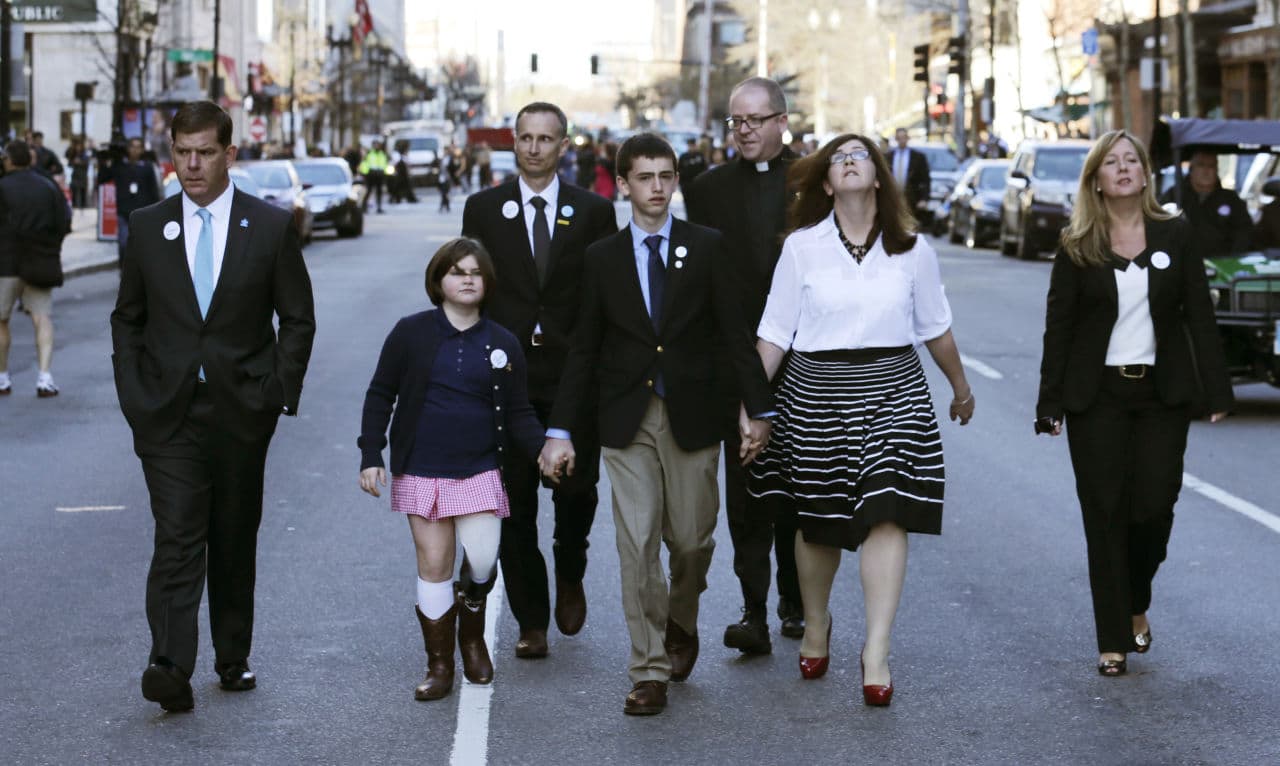Advertisement
Tsarnaev: Considering The Role Of Victims In Sentencing

We never had much reason to doubt that Dzhokhar Tsarnaev would be sentenced to death, given the nature of his crime, as well as the arguable prosecutorial bias of his judge and the automatic exclusion from his jury of death penalty opponents. But we have good reason to doubt if or when his sentence will be carried out.
The trial is only the first stage in a long process that may or may not lead to Tsarnaev’s death. People who consider capital punishment an essential instrument of justice should resign themselves to the fact that it will be long delayed: Appeals may last a decade or more.
If the suffering caused by multiple murders is relevant to sentencing, why is the suffering anticipated by years of death penalty appeals irrelevant?
The Richard family, whose heart wrenching losses came to exemplify Tsarnaev’s extreme cruelty, (and it was his cruelty that was on trial) dreaded the prospect of prolonged appeals. And I wonder: Would jurors have sentenced Tsarnaev to life in prison if they’d been told that it was the punishment the Richards preferred?
Should the jury have been asked to consider the sentencing preferences of the Richard family and other victims, some of whom preferred death? Prosecutors invoked, in words and pictures, the horrific pain and suffering of Tsarnaev’s maimed and murdered victims. Why shouldn’t defense attorneys have been permitted to invoke the preferences of prominent survivors for a life sentence instead of death? If the suffering caused by multiple murders is relevant to sentencing, why is the suffering anticipated by years of death penalty appeals irrelevant?

The role of crime victims in sentencing is controversial. Prosecutors are supposed to represent public, not private interests. So, defining a victim’s role requires determining where the interests of individual victims and the public at large conflict and where they converge. Does consideration of a victim’s sentencing preference turn a trial into a private vendetta, or an exercise in private forgiveness that undermines the public interest in punishment and the imprisonment of a violent offender? Or does the community owe victims some deference to their desires for either retribution or reconciliation?
Tsarnaev’s victims will have the chance to address him and the court when his pre-determined sentence is imposed. But the victim’s experience, the victim’s expression of suffering, may help shape a defendant’s fate when judges have sentencing discretion for non-capital crimes or in parole hearings. In all 50 states, victims are given the opportunity to describe the impact of a crime when defendants are sentenced or considered for parole.
If this seems only compassionate and fair, it may also result in arbitrarily valuing some particularly sympathetic victims and favoring some defendants over others.
If this seems only compassionate and fair, it may also result in arbitrarily valuing some particularly sympathetic victims and favoring some defendants over others. Victims may, for example, testify to the emotional or financial consequences of a crime. Should a defendant who attacks a family breadwinner or someone with particular emotional vulnerabilities be sentenced more harshly than a defendant who attacks a loner or someone with particular emotional resilience?
Tsarnaev victimized multitudes, in varying degrees. So many of us were affected by the bombing and will continue to be affected annually, not just by the memory of the bombing and the fears it invoked but by the pervasive surveillance it helped justify. Indeed, Tsarnaev’s attorneys argued that the multiple, concentric circles of his victims throughout the jurisdiction required moving his trial out of Boston.
Was Dzhokhar Tsarnaev’s trial fair? He should have won a change of venue. The appeals will commence. As some victims feared, this is only the end of the beginning.
